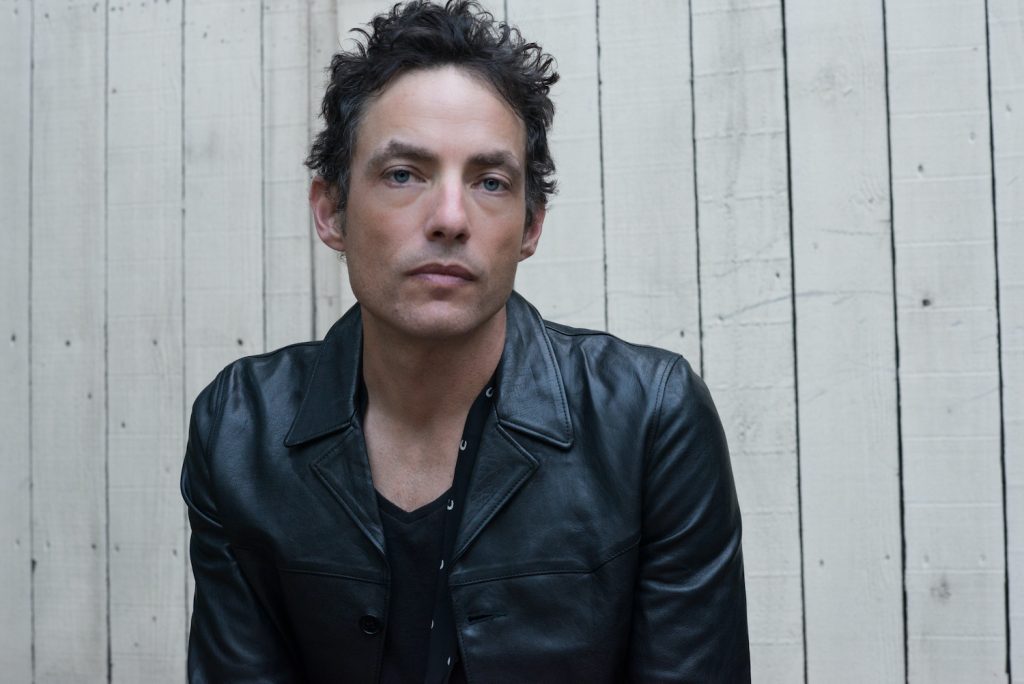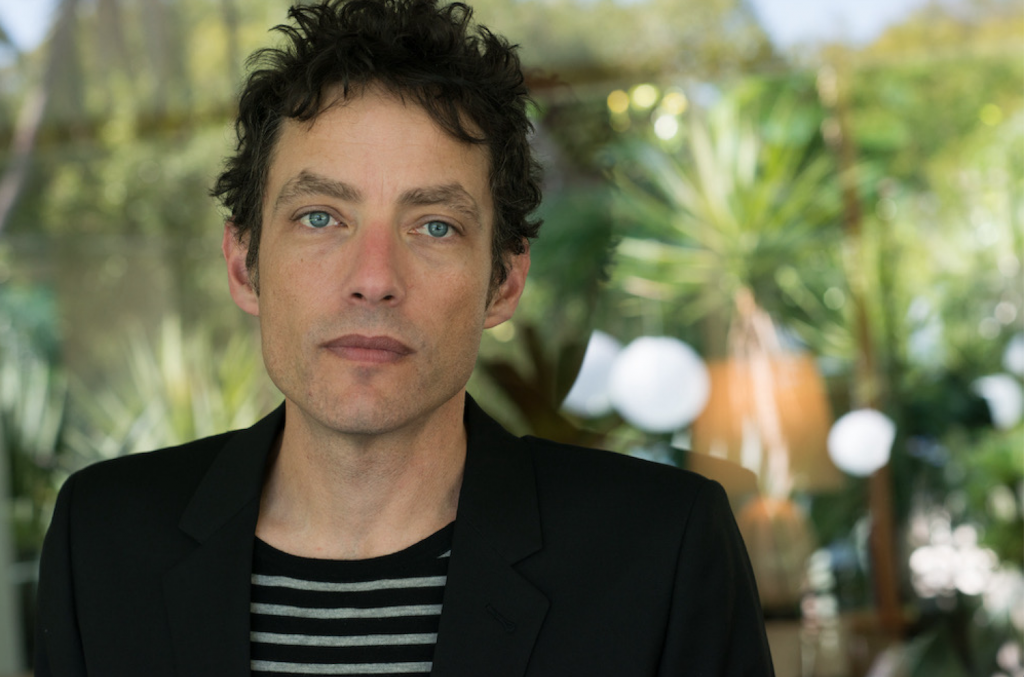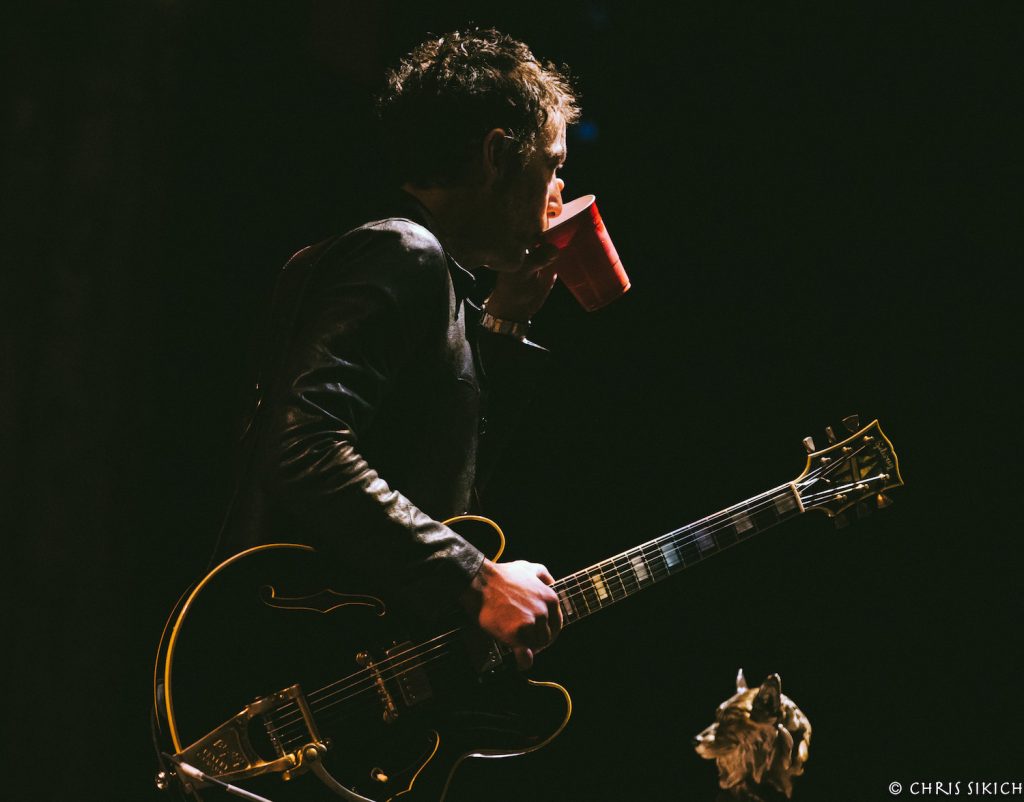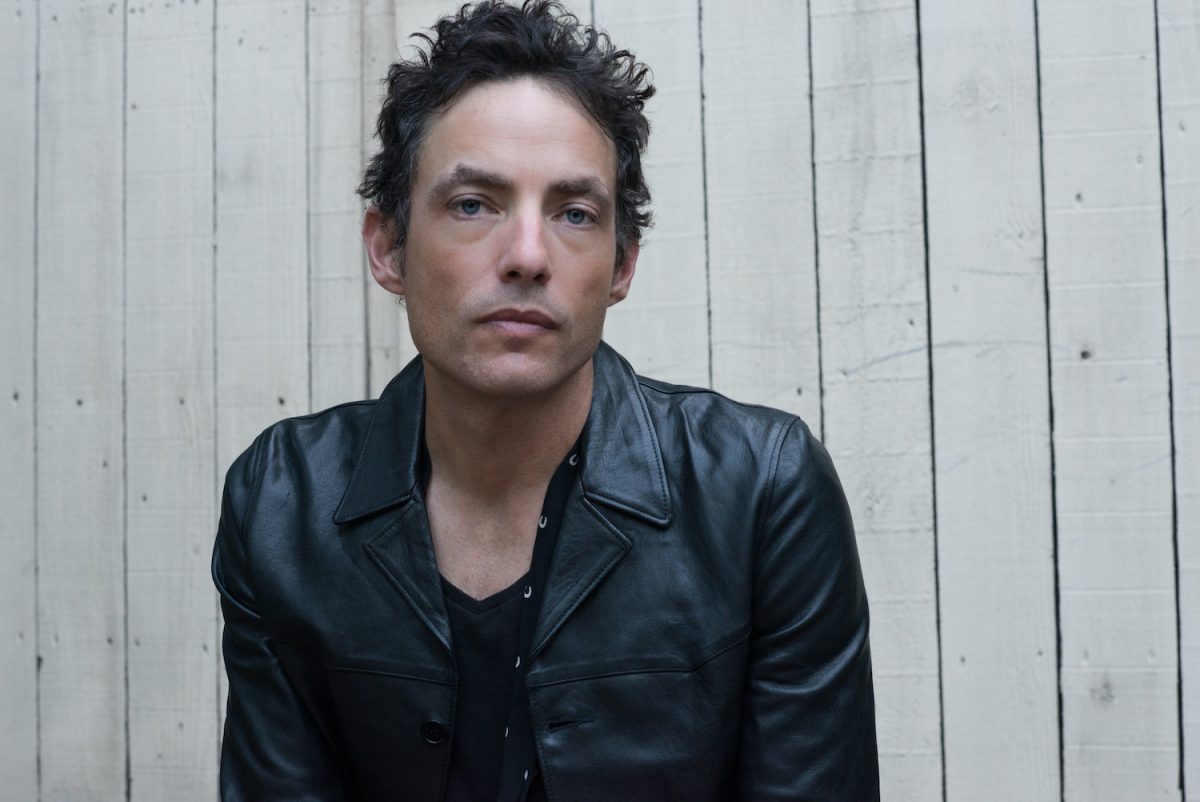
In 1997, when Bob Dylan was cheating death and threatening yet another comeback, his youngest son was making mainstream radio safe for folk and Americana music. To say that the massive success of Bringing Down The Horse was a surprise to Jakob Dylan would be an overstatement. (More on that later.) The Wallflowers responded with two subsequent releases that further refined their focused roots-rock formula before taking a commercial cliff dive along with the rest of the industry in the early 2000s.
After 10 years of relative silence—save for his work on the Echo In The Canyon album and documentary—Dylan has resuscitated the Wallflowers for Exit Wounds (New West). With producer Butch Walker in the chair and a revamped lineup that features guest vocalist Shelby Lynne, Dylan continues his relentless pursuit of the midtempo sweet spot, which he nails more often than not on this efficient, well-crafted effort. Different band, same name, same result—and Dylan has plenty more where that came from.
Let’s start by talking about this latest Wallflowers lineup, which is completely different.
Yeah, I know it’s confusing to people, but that’s the way it’s been since I started the group. Put it this way: There isn’t one lineup to this group that’s ever made a second record. It’s always evolved, it’s always changed, it’s always had me in the center. That’s how it was designed. After the first record in 1992, once that group disintegrated—just before Bringing Down The Horse—it became my group. I’ve always seen it as: I’m going to make a record, and I’m not sure who’s going to be there. That’s never been confusing to me.
And yet it still sounds like the Wallflowers.
It’s not the most unique musical arrangement: guitar, bass, drums and keyboards. And if I’m sitting in the center and playing my songs, I can do that with almost anybody. I stay in my zone, for the most part. I’m going to clog up about 80 percent of what you’re hearing with my voice and my songs, so it should sound like the Wallflowers. But you still want to have some unity and chemistry with people.

These are some of the catchiest tunes you’ve written since (2002’s) Red Letter Days. “Roots And Wings” would be a hit single—in a world where there actually were hit singles.
It’s been all good news I’ve heard about the record so far—but I don’t even know what that means these days. The days when we were all listening to the same thing have come and gone. The attention span is different, and terrestrial radio is basically over. It’s just such a different place.
What was the chemistry like between you and Butch Walker?
I’ve known Butch for a long time. We spend a lot of time together outside of playing music, and I think of him, first and foremost, as a singer/songwriter. The last Wallflowers record (2012’s Glad All Over) wasn’t enjoyable to make for a number of reasons, but you can have an enjoyable time making great music. I trust Butch, and I’m not a kid. I don’t need someone to make my records. I want to do the heavy lifting, and I want to work with people who get that. Butch got that early on, and he gave me a lot of room. The song has to be front and center, with my voice clearing out the space.
With a title like Exit Wounds, one would expect some sort of heavy theme. Is there a thread that holds these songs together?
We all have exit wounds. Whatever’s next, we’re taking a lot of wounds with us—some for the better, some not. An exit wound doesn’t mean death. It means you’ve survived. So there’s a lot of positivity in it, too. It’s about change, movement, going on to the next thing.
“I Hear The Ocean (When I Wanna Hear Trains)” is another standout. You’ve been living in Los Angeles for decades now, but it sure sounds like the song’s protagonist is missing the East Coast.
The song is about displacement. Sometimes, you realize you’re in the wrong place at the wrong time, and you want to push and pull and try something different. Other times, you just feel strapped and you can’t change reality. That song kind of dances around that theme. It also occurs to me that trains do represent the city. But there are trains along the ocean, too. Some people may be confused about that. [Laughs]

Did your work on Echo In The Canyon serve as the inspiration for anything on this album?
I do so much heavy lifting on my albums, so it was nice to be just the singer in the band. It reconfirmed what I already knew—that you’ve got to have a good song. You can chase all kinds of things when you’re making a record, but none of it matters if you don’t have a good song.
Bringing Down The Horse is a quarter-century old this year. Were you shocked that it went quadruple platinum?
I wasn’t really shocked—I thought it was a pretty good album. But if you go back and look at that year, I don’t think it was even in the top 20 bestselling records. [It was actually number seven on the 1997 Billboard charts] People were selling a bazillion records back then. I didn’t need that kind of validation to move forward—I wasn’t even there yet. It was only my second record. But I do feel worthy of it. I’m very proud of that record.
Ultimately, the Wallflowers survived numerous twists and turns over the past 25 years. But it had to be tough when the industry took a nosedive in the early 2000s. How did you power through?
Nobody can use that time as a reference point for anything, really—certainly not success. The industry got so big and bloated that it just popped. It was so out of whack. When Napster was peaking, our record, (2000’s) Breach, was just coming out. I do remember being part of label meetings at that time, and they really didn’t take any of that stuff seriously. They had a chance to partner up and see the future, they refused, and everybody got punished for it. Because the Wallflowers did so well on (commercial) radio and that isn’t around anymore, it may have seemed like we disappeared. But we were still out there playing shows. Some bands never have that kind of radio success, so it seemed to change for us in a drastic way. But I just kept doing what I’d always done.
—Hobart Rowland







